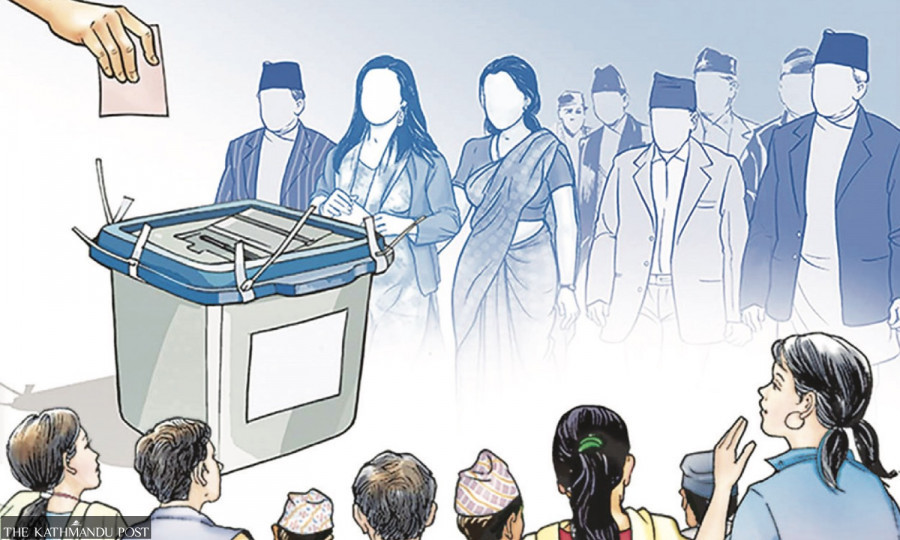Editorial
Yet more promises
Election manifesto publication has also been turned into no more than a ritual.
With just over a month to go for the general elections scheduled for November 20, the political battle lines are being drawn, and the foot soldiers are being deployed. So what will the politicians this time pitch to the voters before the general elections, even as most of the promises they made before the previous polls remain unfulfilled? People are well aware that much of the past five years has been wasted on political infighting and in undercutting the sanctity of the new constitution for partisan gains. Meanwhile, dubious economic policies have crippled the economy.
This time too the parties are keen to publish their election manifestos. The Nepali Congress, which currently leads the government, is the first to approve a preliminary draft of its manifesto. At a time the country is reeling from the blows of successive waves of the pandemic and facing a dire economic situation mainly due to mismanaged policies, the Congress chooses to highlight the failures and wrongdoings of the previous KP Sharma Oli government. Yes the Oli government made some big blunders, but so has the current one. Over the years, blaming their predecessors has been an easy cop-out for those running the country.
Voters have grown sceptical of politicians’ promises for a good reason. For instance, before the 2017 federal and provincial elections, the left alliance (of CPN-UML and CPN-Maoist-Centre) pledged to increase Nepal’s per capita income to $5,000 within a decade of government-formation. But no sooner had they formed the government, the alliance partners started fighting among themselves. Instead of working to put the country on the path of prosperity, Prime Minister Oli twice dissolved the sovereign parliament on dubious constitutional grounds, throwing the country into political and economic turmoil.
The idea of ethical politics seems to have long been lost. To further smother democracy, colourful patchworks of political parties are being stitched together, with parties holding opposing ideologies supporting one another despite simmering tensions between their grassroots-level cadres. This pre-poll coalition culture also makes the election manifestos pretty much irrelevant. How do individual parties make credible promises when they have joined hands with parties that hold diametrically opposite views? There is zero ideological coherence between UML and Janata Samajbadi Party, and yet they have come together to fight on a common ticket. If anything, given UML’s rigid position on amendment of citizenship provisions in the constitution, the JSP, a Madhesh-based party, should have been its sworn enemy. Likewise, the ruling coalition is riddled with inconsistencies that are hard to paper over.
While we at home are starting down at a full-blown economic crisis, many are leaving the country in search of good jobs. Those going see no hope in their own country and their over-promising but under-working politicians. When interviewed, many of them say they have zero interest in voting for any party. Just as happened to so many other democratic exercises in the country, manifesto publication has also been turned into no more than a ritual. This begs the question: Why do our political parties at all bother to publish their manifestos?




 13.12°C Kathmandu
13.12°C Kathmandu














